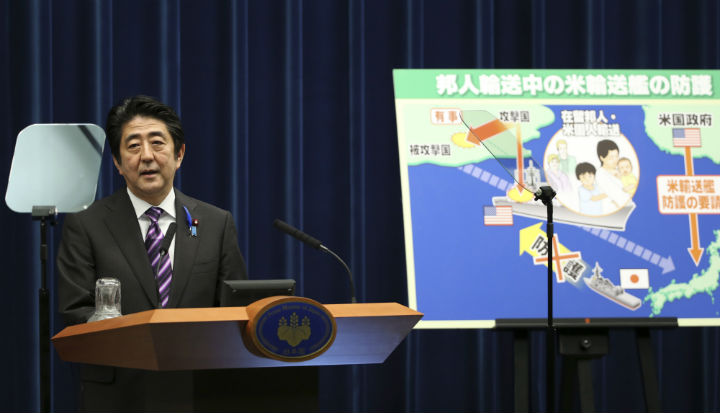Japan’s government approved a reinterpretation of the war-renouncing constitution Tuesday to allow greater use of military force to defend other countries in one of the biggest changes to Japan’s postwar security policy.

READ MORE: Japan reinterprets postwar constitution to allow larger military role
The government has given these and other examples to show how Japan will be able to use its military when updates of related laws are complete later this year:
DEFEND U.S. WARSHIPS: Protecting U.S. warships being attacked by a third country near Japanese waters before an imminent, direct attack on Japan, because co-operation with U.S. troops is essential to secure Japan’s own survival.
STOP SHIPS FOR INSPECTION: Forcibly stopping vessels for inspection when they are believed to be carrying weapons to a third country attacking U.S. warships in the open sea near Japan while the battle seems highly likely to spill over to Japan – a step currently considered unconstitutional and prohibited as use of force.
SHOOT DOWN A MISSILE FIRED AT U.S.: Intercepting a ballistic missile when it’s detected as heading toward Hawaii, the U.S. territory of Guam or the U.S. mainland, flying over the Japanese archipelago and requested by America to do so.
PROTECT PEACEKEEPERS ABROAD: Rescuing civilians engaged in U.N.-backed peacekeeping operations that come under attack and using weapons if necessary to defend those civilians.
MINESWEEPING IN THE MIDEAST: A plan still being contemplated would allow Japanese forces to participate in U.N.-led multinational minesweeping efforts to secure sea lanes in the Middle East, such as the Strait of Hormuz, which are a crucial lifeline for resource-poor Japan.



Comments